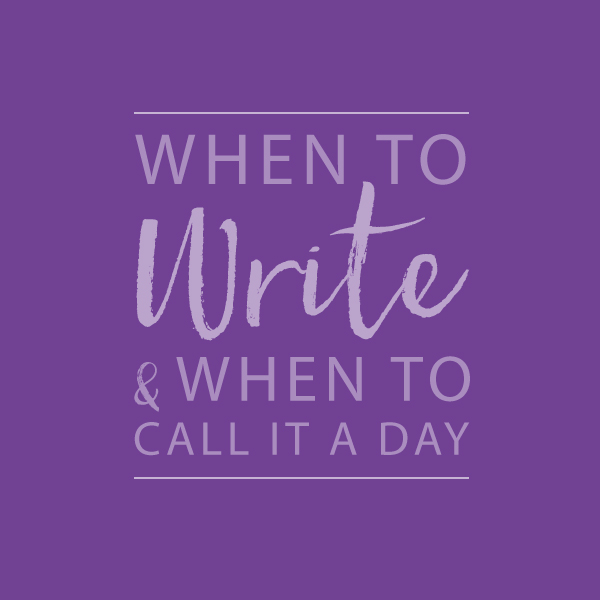“Do you ever feel superstitious about your writing time? Like you have to write in the same place, at the same time, after eating the same thing, to recapture the same success of a particular writing day that went well? Or do you find yourself giving up on a day’s writing because you weren’t able to do those things?”
This is an intriguing set of questions because whether or not a writer considers themselves superstitious about their writing practice, it speaks to underlying strategies and challenges around having a consistent writing practice, which is something I recommend for most writers. Let’s discuss. [more…]
Create a routine or container for your writing practice, but don’t be afraid to experiment and refine. Being a creature of habit is useful for writers, but we don’t have to be locked in.
I’d love to answer them for you in my column.











 I’m leading a one-week intensive called “Fitting Writing Into Your Life: Becoming a Productive Screenwriter” at Screenwriter’s University starting on August 11th and running for 7 days. It’s a three-part online recorded video presentation from me and plus online discussions, interaction, and support from me.
I’m leading a one-week intensive called “Fitting Writing Into Your Life: Becoming a Productive Screenwriter” at Screenwriter’s University starting on August 11th and running for 7 days. It’s a three-part online recorded video presentation from me and plus online discussions, interaction, and support from me. 

 Note from Jenna: This guest post is from one of our excellent Writer’s Circle coaches and screenwriter, Sarah Newman. I’ve been thrilled to have Sarah as a coach over the last year and a half, and her group participants absolutely adore her (as do I). She brings a compassionate, listening spirit to her coaching and she is an excellent role model with her strong writing work ethic. In her own writing, Sarah primarily works on TV pilots and features.
Note from Jenna: This guest post is from one of our excellent Writer’s Circle coaches and screenwriter, Sarah Newman. I’ve been thrilled to have Sarah as a coach over the last year and a half, and her group participants absolutely adore her (as do I). She brings a compassionate, listening spirit to her coaching and she is an excellent role model with her strong writing work ethic. In her own writing, Sarah primarily works on TV pilots and features.
 Note from Jenna: This guest post is from one of our wonderful Writer’s Circle members, Janis Brams.
Note from Jenna: This guest post is from one of our wonderful Writer’s Circle members, Janis Brams.
 Note from Jenna: This guest post is from one of my favorite screenwriter pals, Tomm Gillies. Tomm is a writer, director, and lighting designer with a more than full-time business that keeps him on the road a LOT, and a family he loves spending time with. Finding time to write isn’t always easy for him, but he makes it happen.
Note from Jenna: This guest post is from one of my favorite screenwriter pals, Tomm Gillies. Tomm is a writer, director, and lighting designer with a more than full-time business that keeps him on the road a LOT, and a family he loves spending time with. Finding time to write isn’t always easy for him, but he makes it happen. For Father’s Day one year, my wife and kids got me a coffee mug that says “Go Away. I’m Writing.” They know when I’m using that mug it’s writing time.
For Father’s Day one year, my wife and kids got me a coffee mug that says “Go Away. I’m Writing.” They know when I’m using that mug it’s writing time.